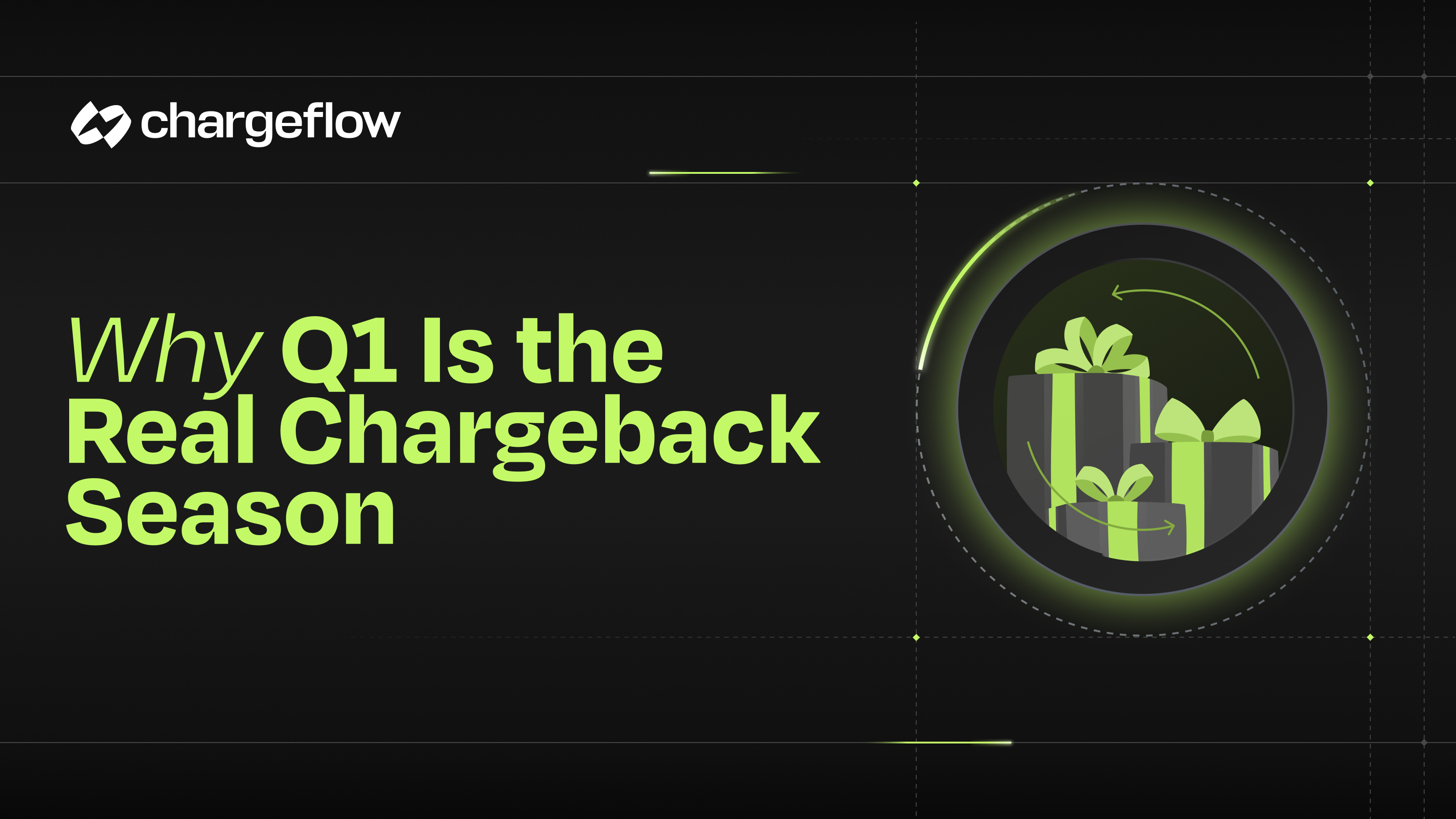A Complete Guide to Understanding Chime Disputes and Chargebacks

Chargebacks?
No longer your problem.
Recover 4x more chargebacks and prevent up to 90% of incoming ones, powered by AI and a global network of 15,000 merchants.
Discover how to protect your money with Chime disputes and chargebacks. Our complete guide covers everything you need to know to avoid fraud chargebacks
Chargebacks and disputes are two of the most important topics for online payment processors like Chime. Ensuring customer satisfaction is paramount for businesses, so an understanding of how to handle these situations is essential.
In this comprehensive guide, we'll cover everything you need to know about chargebacks and disputes, including what they are, when they occur, how to prevent them from happening in the first place, and how to respond if one occurs on your Chime account.
Whether you're brand new to processing payments through Chime or a seasoned pro looking for an update on newer procedures around dispute management and chargeback prevention strategies, you’ll find all the information you need right here!
What are Chime disputes?
Chime is a financial technology company that provides banking services through its mobile app. Chime disputes refer to disagreements between Chime account holders and merchants over transactions processed through the Chime platform. These disputes may arise due to various reasons, such as fraudulent charges, incorrect charges, or disputes over the quality of goods or services.
When a Chime dispute occurs, the Chime account holder can file a dispute with Chime through the mobile app. Chime will then investigate the dispute and may issue a chargeback to the merchant if the dispute is found to be valid.
There are several types of Chime disputes, including fraud disputes, authorization disputes, and processing errors. Fraud disputes occur when a Chime account holder claims that their account was used fraudulently to make a purchase.
Authorization disputes occur when the merchant charged the Chime account holder for a transaction that the account holder did not authorize. Processing errors occur when there is an error in processing a transaction, such as charging the wrong amount.
Chime disputes may happen for various reasons, such as a merchant's failure to deliver the promised goods or services, incorrect billing, or fraudulent activity on the part of the merchant or a third party.
It is important for merchants to be aware of these potential issues and to take steps to prevent disputes from occurring in the first place. This can include providing clear and accurate information about goods or services, ensuring that billing is correct, and implementing fraud prevention measures.
How to prevent Chime disputes?
When it comes to preventing disputes with your Chime account, understanding the common causes of disputes is key. This can include issues like billing errors or unauthorized transactions.
It's also important to maintain clear communication with your customers in order to avoid confusion or misunderstandings. Setting clear terms and conditions upfront can also help prevent disputes down the line.
In addition to clear communication, keeping accurate records is essential in case a dispute does arise. And if a dispute does occur, handling it promptly and efficiently can go a long way in maintaining customer satisfaction and preventing further issues.
By following these steps, you can minimize the risk of Chime disputes and keep your finances running smoothly.
Difference between Chime disputes and chargebacks
A dispute occurs when a customer reports an issue with a transaction, such as unauthorized charges or incorrect amounts. On the other hand, chargebacks occur when a customer disputes a transaction with their bank and the bank contacts the merchant for resolution.
Although they are related, the main difference is that chargebacks involve a third-party mediator, whereas disputes are handled directly between the customer and the merchant.
It is important to handle each issue differently, as disputes may require documentation and communication with the customer, while chargebacks may require detailed evidence to avoid fees and loss of reputation.
What happens during a Chime dispute?
The dispute process begins when a user files a dispute by contacting Chime's customer support team. Chime then investigates the dispute by collecting information from both the user and the merchant. The investigation may take several weeks, during which time the disputed funds may be temporarily held. Once the investigation is complete, Chime will notify the user of the outcome.
How to respond to a dispute?
If you receive a dispute notification from Chime, it is important to respond in a timely manner. You will be asked to provide documentation that supports your side of the dispute. This may include receipts, invoices, or other evidence that proves the validity of the transaction. It is important to provide as much information as possible to help speed up the resolution process.
Timeline for resolution
The timeline for resolving a dispute varies depending on the complexity of the case. In most cases, Chime will complete its investigation within 45 days of receiving the dispute notification. However, some cases may take longer to resolve.
Best practices for responding to Chime disputes
To increase the chances of a successful resolution, it is important to follow these best practices:
- Respond promptly: Respond to the dispute notification as soon as possible.
- Provide accurate information: Make sure to provide accurate and complete information to support your side of the dispute.
- Keep records: Keep records of all transactions made using your Chime account, including receipts and invoices.
- Be patient: Dispute investigations may take time, so be patient and allow Chime to complete its investigation.
How to appeal a Chime dispute or chargeback?
To appeal a Chime dispute or chargeback, follow these steps:
- Contact Chime Support: The first step is to contact Chime's customer support team to inform them that you would like to appeal a dispute or chargeback. You can do this through the app or by calling their customer service number.
- Gather evidence: You will need to provide evidence to support your appeal. This can include receipts, invoices, transaction records, and any other relevant documentation that can help prove your case.
- Write a letter: Next, you will need to write a letter explaining why you are appealing the dispute or chargeback. Be sure to include all relevant information and evidence to support your case.
- Submit your appeal: Once you have gathered all the necessary evidence and written your letter, you can submit your appeal to Chime. You may need to provide additional information or respond to further inquiries from Chime's customer support team.
- Wait for a decision: Chime will review your appeal and make a decision based on the evidence you have provided. If your appeal is successful, the disputed funds will be returned to your account. If your appeal is denied, you may need to explore other options such as filing a complaint with a regulatory agency or seeking legal advice.
Final Thoughts on Chime disputes
The complexity of Chime disputes and chargebacks can make handling them seem daunting. Merchants should never shy away from tackling them head-on, as understanding the principles behind both processes is fundamental to maintaining a profitable business.
By ensuring that you’re aware of the different types, preventive measures, and what to do if a chargeback or dispute is filed, you’ll be better equipped to handle it and mitigate any losses.
Don’t let the fear of the unknown stop you from protecting your business from costly fees and potential fraud; stay ahead of the game by educating yourself on the ins and outs of Chime disputes and chargebacks today.

Chargebacks?
No longer your problem.
Recover 4x more chargebacks and prevent up to 90% of incoming ones, powered by AI and a global network of 15,000 merchants.
















































.png)








